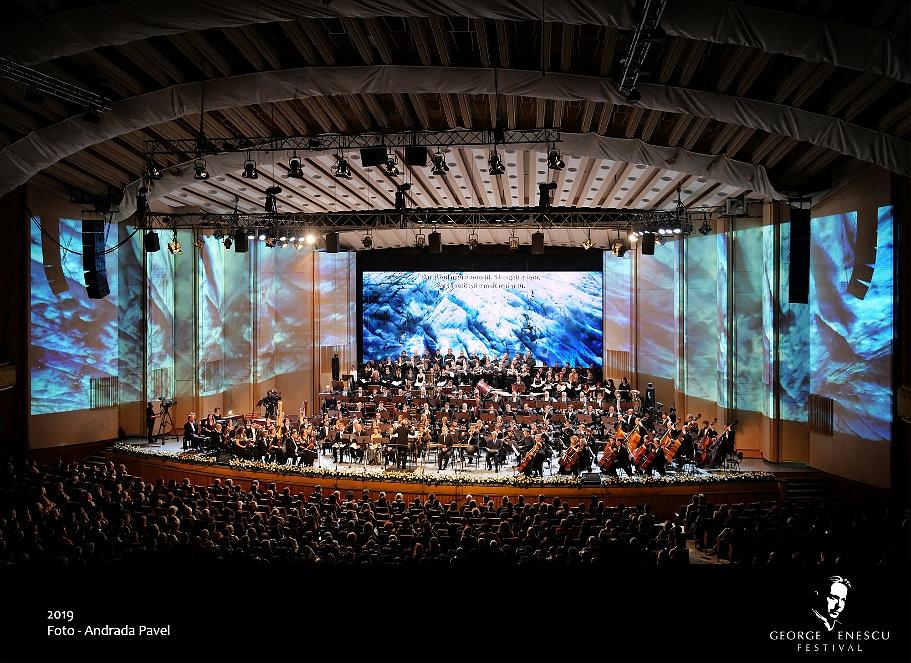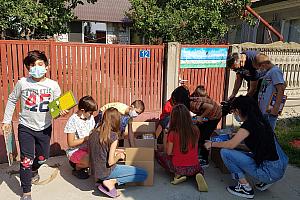Romania’s George Enescu Festival announces program of 2021 edition

The 25th edition of the George Enescu International Festival, the largest classical music event in the country, is scheduled to take place between August 28 and September 26.
The festival could bring some 3,700 artists to Bucharest this fall for an anniversary edition that also marks 140 years since the birth of George Enescu. But the organizers warned that many aspects could change because of the pandemic and advised the public to check on updated information regularly.
Speaking about the program, Vladimir Jurowski, the artistic director of the festival, said it is an “ideal” one.
“We have tried to make this program as special as possible. Presenting it to you now, we have to be aware of the fact that since we are still living with the Covid-19 pandemic, the program, as we have envisaged it for the anniversary edition, is not final. Changes will be necessary, and I’m sure you will all appreciate that it is impossible in these times to program in advance with exact knowledge how things will turn because every week brings new information, new restrictions […] We have to be prepared to change. Therefore, view this program as a sketch, as some kind of an ideal program which we would like to happen and which we are hoping we’ll be possible by the autumn of this year,” Vladimir Jurowski, the artistic director of the festival, explained.
Besides a significant number of works by George Enescu, the program will also include works by Igor Stravinsky to mark 50 years since the death of the Russian-born composer. Some of them will be works not performed in Romania before.
“Such works as The Flood or Les Noces will be performed with the participation of four Romanian pianists, in collaboration with the percussionists of the Radio Symphony Orchestra Berlin, and Russian and Romanian singers, will be performed in Romania for the first time,” Jurowski explained.
The festival will showcase many European orchestras and British orchestras. “Despite the recent political developments called by Brexit, we still view British music and British musicians as a part of pan-European culture, and we are hoping that, at least culturally, the dialogue with British music will continue and this festival will should mark a new beginning, a new chapter in the relationships between Great Britain and Europe,” Jurowski said.
The festival’s program will also dedicate important segments to contemporary music, with musicians such as Patricia Kopatchinskaja, Sir Simon Keenlyside, Sir Simon Rattle, or Raphael Wallfisch performing 20th-century works or world premieres, the festival’s artistic director announced.
The program will also include several opera-in-concert events, with many works not performed at the festival before, including Eric Wolfgang Korngold’s Die tote Stadt (The Dead City), Alexander von Zemlinsky’s Der Zwerg, Alban Berg’s Lulu, and an early work of Enescu – Strigoii.
The concerts in the festival will be grouped into four series: Great Orchestras of the World, covering concerts scheduled to take place at Sala Palatului, Concerts and Recitals, taking place at the Athenaeum, The Music of the 21st Century, with concerts held at Sala Radio, and Enescu and Contemporaries, a series of morning concerts held at the Auditorium Hall of the National Museum of Art of Romania (MNAR). The Midnight Concerts series was dropped to prevent the crowding of the Athenaeum and allow for the adequate cleaning measures.
The announced program is available here.
The festival’s artistic director also called on all the parties involved to work to make the event happen.
“That’s why I’m calling on all parties involved, all the important players in this team, the Government, the sponsors, the artists, and also the audience to cooperate in such a way that this festival can take place. We need the support of all parties involved, including the audience, because if people stay at home out of fear and don’t buy tickets, don’t come to the concerts, or don’t at least demand to see the concerts on their home screens, then all efforts will be in vain,” Jurowski said.
The sale of tickets and passes is scheduled to start in June. Tickets will be available for both the indoor performances and their online broadcast, as the festival is also working on developing a VoD platform. As it happened at the previous edition of the festival, a lottery will be organized for the sale of the passes. The number of seats available for the indoor performances will be reduced, in keeping with current sanitary norms.
(Photo courtesy of the organizers)
simona@romania-insider.com













